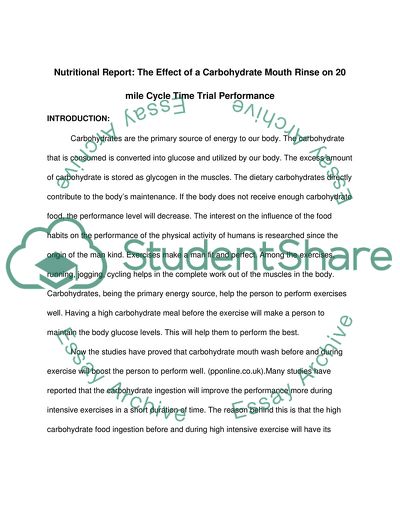Cite this document
(The Effect of a Carbohydrate Mouth Rinse on 20 mile Cycle Time Trial Research Paper, n.d.)
The Effect of a Carbohydrate Mouth Rinse on 20 mile Cycle Time Trial Research Paper. Retrieved from https://studentshare.org/health-sciences-medicine/1563701-nutritional-report-the-effect-of-a-carbohydrate-mouth-rinse-on-20-mile-cycle-time-trial-performance
The Effect of a Carbohydrate Mouth Rinse on 20 mile Cycle Time Trial Research Paper. Retrieved from https://studentshare.org/health-sciences-medicine/1563701-nutritional-report-the-effect-of-a-carbohydrate-mouth-rinse-on-20-mile-cycle-time-trial-performance
(The Effect of a Carbohydrate Mouth Rinse on 20 Mile Cycle Time Trial Research Paper)
The Effect of a Carbohydrate Mouth Rinse on 20 Mile Cycle Time Trial Research Paper. https://studentshare.org/health-sciences-medicine/1563701-nutritional-report-the-effect-of-a-carbohydrate-mouth-rinse-on-20-mile-cycle-time-trial-performance.
The Effect of a Carbohydrate Mouth Rinse on 20 Mile Cycle Time Trial Research Paper. https://studentshare.org/health-sciences-medicine/1563701-nutritional-report-the-effect-of-a-carbohydrate-mouth-rinse-on-20-mile-cycle-time-trial-performance.
“The Effect of a Carbohydrate Mouth Rinse on 20 Mile Cycle Time Trial Research Paper”, n.d. https://studentshare.org/health-sciences-medicine/1563701-nutritional-report-the-effect-of-a-carbohydrate-mouth-rinse-on-20-mile-cycle-time-trial-performance.


